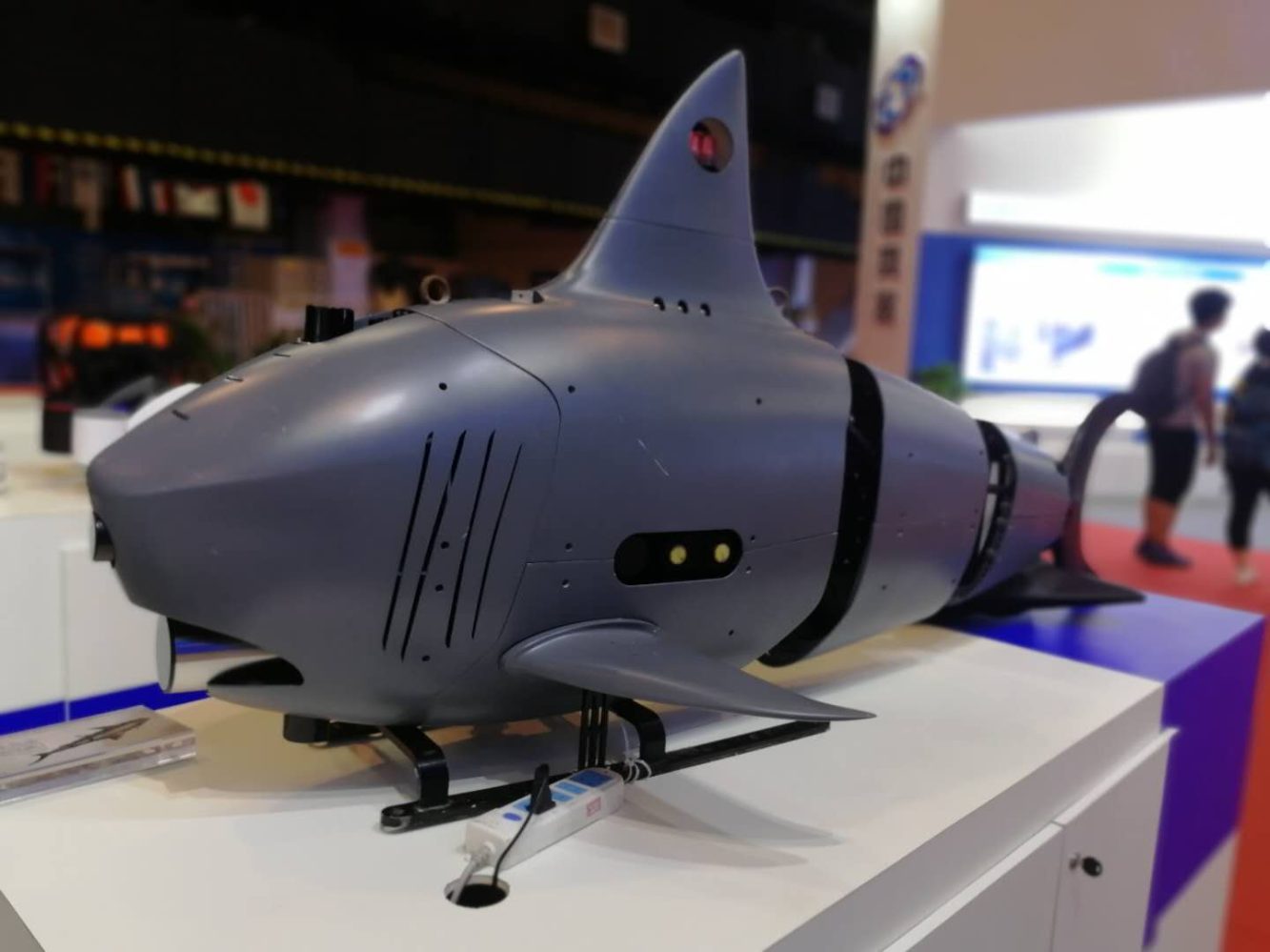
Cue the music from Jaws, with maybe a bit of “Ride of the Valkyries” blended in for that Apocalypse Now feel. Because China has developed a two-meter-long military shark drone for deployment in intelligence gathering and anti-submarine warfare activity.
China’s military Robo-Shark drone performs a variety of operational tasks
The marine drone, dubbed Robo-Shark, looks unsettlingly like the real thing when it’s wending its way through the water. True, it doesn’t have the bite of the infamous great white that terrorized Amity Island in the Steven Spielberg blockbuster. But it boasts tech potential for inflicting pain in other ways. According to the Chinese Communist Party’s Global Times that first reported on the craft, it was built to conduct “underwater close-in reconnaissance, search and rescue, battlefield surveillance, anti-submarine, hydrological survey, communications relay and underwater tracking missions.”
With a sinister-sounding CV like that, it may as well take hunks out of people while it’s at it.
The craft is outfitted with a bionic tail section that can whip it up to maximum speeds of 10 knots. That form of locomotion, meanwhile, also reduces battery drain compared to conventional underwater motors for longer missions. According to the robosea.org site of Beijing-based manufacturer Boya Gongdao Robot Technology, the robotic shark is 2.2 meters long and is equipped with an “all-around obstacle avoidance” system. It also contains “considerable space inside” to load new tech to add or adapt its capacities to mission specifications.
None of the limited company information or details in media reports indicate the Robo-Shark is or has been deployed as an armed assault weapon. Yet China is usually pretty coy about crowing its military tech accomplishments, only letting the world know once they’re old news.
Is the US way ahead… in catching up to China’s tech lead?
Just this month, for example, researchers revealed China’s advanced automated underwater drone. Its onboard artificial intelligence (AI) allowed the craft to detect, identify, fire upon, and hit a dummy target without human input way back in 2010. That vessel was just part of a Chinese smart robotic program launched in the 1990s – far before most of the world had even heard of AI.
It’s therefore entirely feasible the country has similarly tested the stealthy shark in the widest variety of scenarios prior to the de-fanged version of creature being introduced to the public this month.
A major test of the Robo-Shark’s efficiency will probably come down to its communications chops. Data is notoriously tough to broadcast underwater without being detected. The oceanic medium also tends to limit maximum transition distances, usually requiring marine drones to periodically tether to a surface buoy, which relays collected information to satellites. According to defense expert and editor at the National Interest, Kris Osborn, those current restraints may become non-problems for fully automated craft.
“One interesting now-in-development Navy drone, Raytheon’s Barracuda, is engineered with a wireless undersea data link and autonomous algorithms such that it can find, track and even destroy enemy targets such as mines, without needing human intervention,” Osborn writes. “However… based on available information in the newspaper, the new Robot-Shark Chinese undersea drone seems unlikely to rival the United States.”
Let’s hope not. But as we learned this month, the head-start China gave itself in drone and AI development in the 1990s may now allow it to look over its shoulder at what the US is currently working on and wonder “what took you so long?”
FTC: We use income earning auto affiliate links. More.




Comments